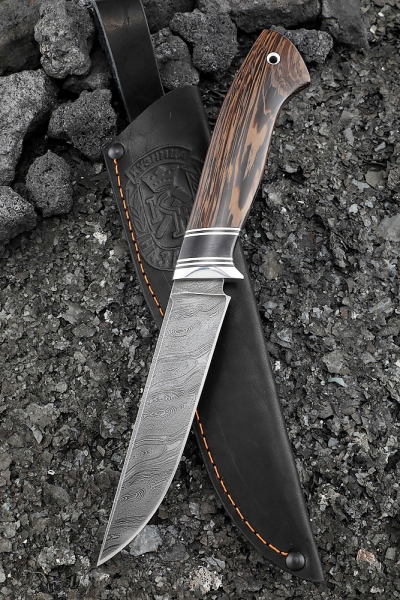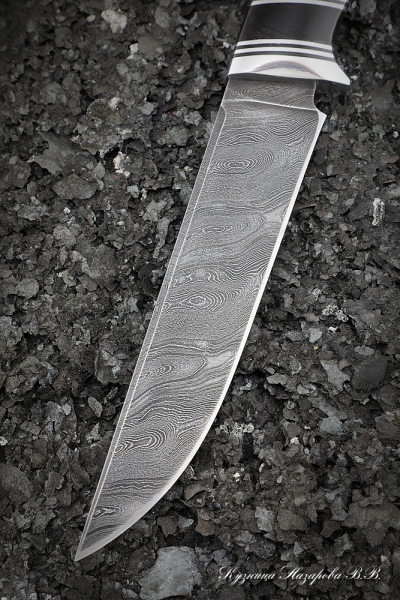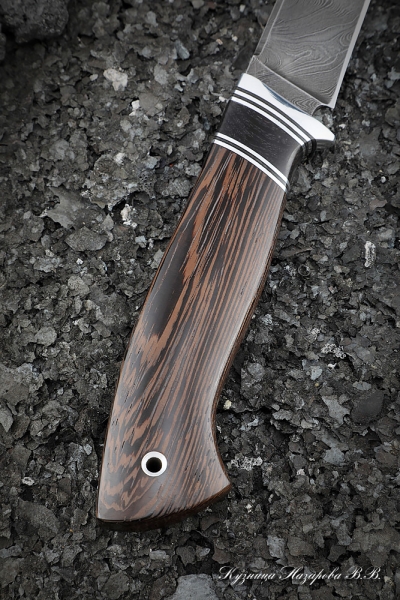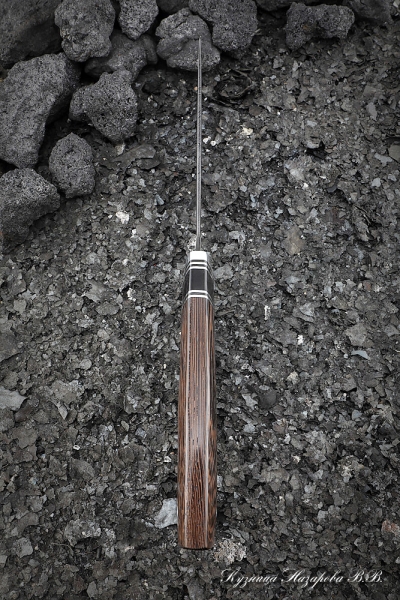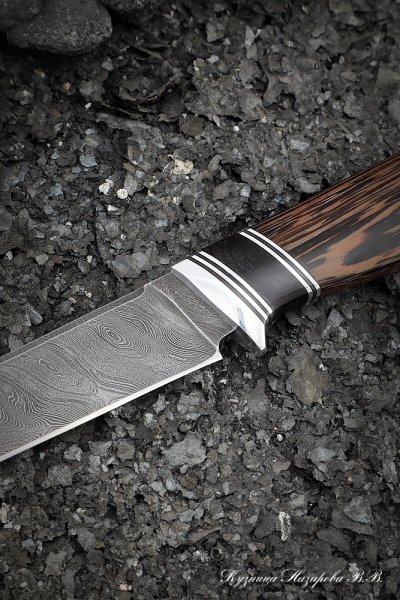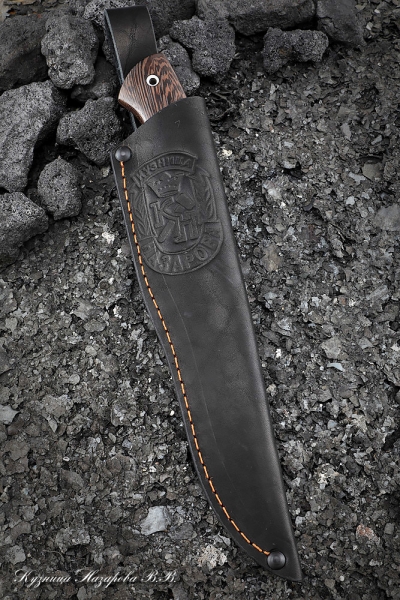- Главная
- Online knife shop
- By type of steel
- Damaskus knives
- Knife Irbis-2 Damascus handle wenge
Knife Irbis-2 Damascus handle wenge
Knife Irbis-2 Damascus handle wenge
- Blade steel tipeDamascus
- Материал рукоятиВенге
- Lengtn blade (os)127 mm
- Witdth blade (os)27 mm
- Толщина клинка3 mm
- Lengtn handle (os) 125 mm
- Hardness (HRC)62
- Product weight, gram120
- SheathGenuine Leather
- КонструкцияФиксированные
- Форма клинкаNormal Blade
- GTIN2039800204903
Detailed analysis of characteristics and features
Blade steel — Damascus, hardness 62 HRC:
Damascus steel has a unique wavy structure and high performance properties. A hardness of 62 HRC indicates excellent wear resistance: such a blade retains its sharpness for a long time, which is especially important for active use. Damascus, thanks to its layering, combines hardness and elasticity, and is resistant to chipping when used correctly.
Blade Shape — Normal Blade:
The classic shape with a smooth lowering of the butt to the tip (Normal/Drop Point) is universal for most economic and tourist tasks. This blade perfectly copes with slicing, planing, skinning and precision work — from cutting meat to preparatory kitchen operations in field conditions.
Handle material — wenge:
The natural African wenge tree fits perfectly in the hand, has a characteristic deep dark shade and high density. This handle is resistant to moisture, mechanical wear and is not susceptible to cracking with proper care. Ergonomic dimensions (handle length 125 mm) contribute to a secure grip in both dry and wet conditions.
Dimensions and balance:
The blade length of 127 mm with a thickness of 3 mm provides a good balance between strength, control and cutting efficiency. This size is optimal for a universal knife, both for tourists, fishermen, hunters, and for daily household tasks.
Resistance to moisture and corrosion:
Damascus steel has a basic resistance to moisture, but requires regular maintenance: after use, wipe the blade, periodically lubricate with oils. The wenge is by nature resistant to moisture and minimally susceptible to deformation, and the leather sheath provides additional protection during storage and transportation of the knife.
Maintenance and sharpening:
Due to its high hardness, the blade keeps sharpening for a long time, but requires a careful approach when editing — preferably using diamond or ceramic bars. Damascus does not like heavy lateral loads and cutting on hard surfaces (stone, bone, metal). The care of the handle is reduced to regular treatment with wax or oil for wood.
Scope of application, advantages and limitations
Optimal tasks:
— Tourism and outdoor activities: versatile in the field
— Hunting (trophy cutting, skinning)
— Fishing (preparation, cutting)
— Camping, bushcraft
— A gift or a collector's item (aesthetics of Damascus and wenge)
Advantages:
— High wear resistance and long sharpening life
— Impeccable aesthetics: signature damascus steel pattern and rich wenge color
— Versatility of the Normal Blade shape
— Excellent hand grip even in wet conditions
— Environmental friendliness and durability of natural materials
— Leather sheath for safe storage
Restrictions:
— It is not recommended for power work on hard materials (bone, metal, frozen food)
— Requires regular maintenance to avoid blade corrosion
— Not the most suitable option for delicate kitchen operations requiring an ultra-narrow blade
Unique features and historical context
Damascus steel is famous for its thousand—year history of use by masters of the East and West - knives with a similar blade were appreciated and appreciated for their combination of working sharpness and artistic expressiveness. Wenge is a premium wood with a pronounced texture that adds personality to each product: there are no two identical handles.
Care recommendations
— Always wipe the blade dry after work and apply a thin layer of oil (any mineral or special for blades)
— Keep the knife in a dry place, it is recommended to dry the leather sheath when wet
— Handle should be periodically treated with wood wax or special oil
— Use diamond or ceramic abrasives for sharpening, avoid aggressive electric sharpeners
Final recommendation
The knife is ideal for those who are looking for a versatile and aesthetically perfect tool for tourism, hunting, fishing and collecting with hand-crafted designs and an emphasis on natural materials. For power, industrial, or extremely heavy work on hard materials, it is better to choose a knife with a different steel and blade shape.







